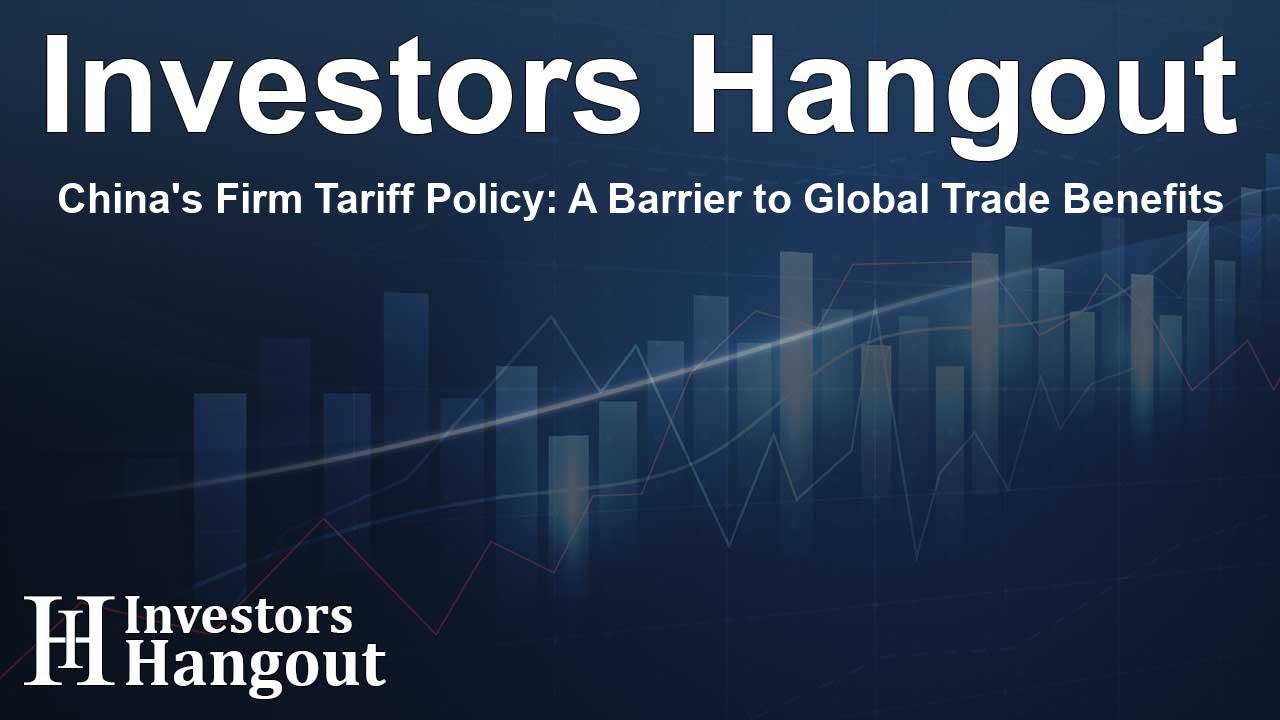China's Firm Tariff Policy: A Barrier to Global Trade Benefits

China's Firm Stance on Tariffs and Global Trade
China continues to assert its position regarding tariffs, as emphasized by He Yadong, a spokesperson for the Ministry of Commerce. This statement comes amidst ongoing discussions surrounding trade relations, particularly with the United States.
During a recent briefing, He Yadong reiterated that tariffs serve no advantage to any party involved, which includes other nations and particularly the United States. The essence of this statement highlights China's commitment to an open trade dialogue that benefits all parties rather than imposing barriers that could hinder mutual growth.
Communication with U.S. Departments
The Ministry of Commerce in China has been actively engaging with relevant U.S. departments to facilitate discussions about tariffs. This communication signals China's willingness to collaborate on trade matters and seek solutions that may promote smoother economic relations with the U.S.
Understanding Tariffs and Their Impact
Tariffs are taxes imposed on imported goods, which can raise prices for consumers and lead to economic strain. By stating that these tariffs are unbeneficial, China suggests that such measures only create unnecessary tensions and challenges in international trade.
The Broader Implications of Tariff Policies
China's firm stance against tariffs could pave the way for more constructive trade negotiations in the future. As global markets continue to evolve, the impact of tariff decisions can significantly influence economic dynamics, not just between two nations but also across the globe.
Achievements in Trade Relations
As of late, China has made strides to foster better trade relations with numerous countries by emphasizing the importance of open markets and fair trade practices. Through various international agreements, China aims to enhance trade cooperation while mitigating conflicts arising from tariff disputes.
Looking Ahead: Prospects for Trade Negotiations
Moving forward, the prospects for trade negotiations between China and the U.S. may hinge on mutual understanding and respect for each other's trade policies. Both nations could benefit from an approach that prioritizes collaboration over conflict.
Frequently Asked Questions
What is China's current stance on tariffs?
China maintains that tariffs benefit no one, and this viewpoint has been reiterated by officials from the Ministry of Commerce.
How are tariffs affecting global trade?
Tariffs can raise prices for consumers and create barriers to trade, which may negatively impact economic growth and international relationships.
Has China communicated with the U.S. about tariffs?
Yes, China's commerce ministry has been in communication with relevant U.S. departments to discuss tariff issues and implications for trade.
What are the broader implications of China's tariff stance?
China's stance could encourage more constructive trade negotiations globally and promote fair trade practices.
What steps are being taken to improve trade relations?
China is actively working on enhancing trade relationships through international agreements and dialogue aimed at reducing trade frictions.
About The Author
Contact Evelyn Baker privately here. Or send an email with ATTN: Evelyn Baker as the subject to contact@investorshangout.com.
About Investors Hangout
Investors Hangout is a leading online stock forum for financial discussion and learning, offering a wide range of free tools and resources. It draws in traders of all levels, who exchange market knowledge, investigate trading tactics, and keep an eye on industry developments in real time. Featuring financial articles, stock message boards, quotes, charts, company profiles, and live news updates. Through cooperative learning and a wealth of informational resources, it helps users from novices creating their first portfolios to experts honing their techniques. Join Investors Hangout today: https://investorshangout.com/
The content of this article is based on factual, publicly available information and does not represent legal, financial, or investment advice. Investors Hangout does not offer financial advice, and the author is not a licensed financial advisor. Consult a qualified advisor before making any financial or investment decisions based on this article. This article should not be considered advice to purchase, sell, or hold any securities or other investments. If any of the material provided here is inaccurate, please contact us for corrections.
